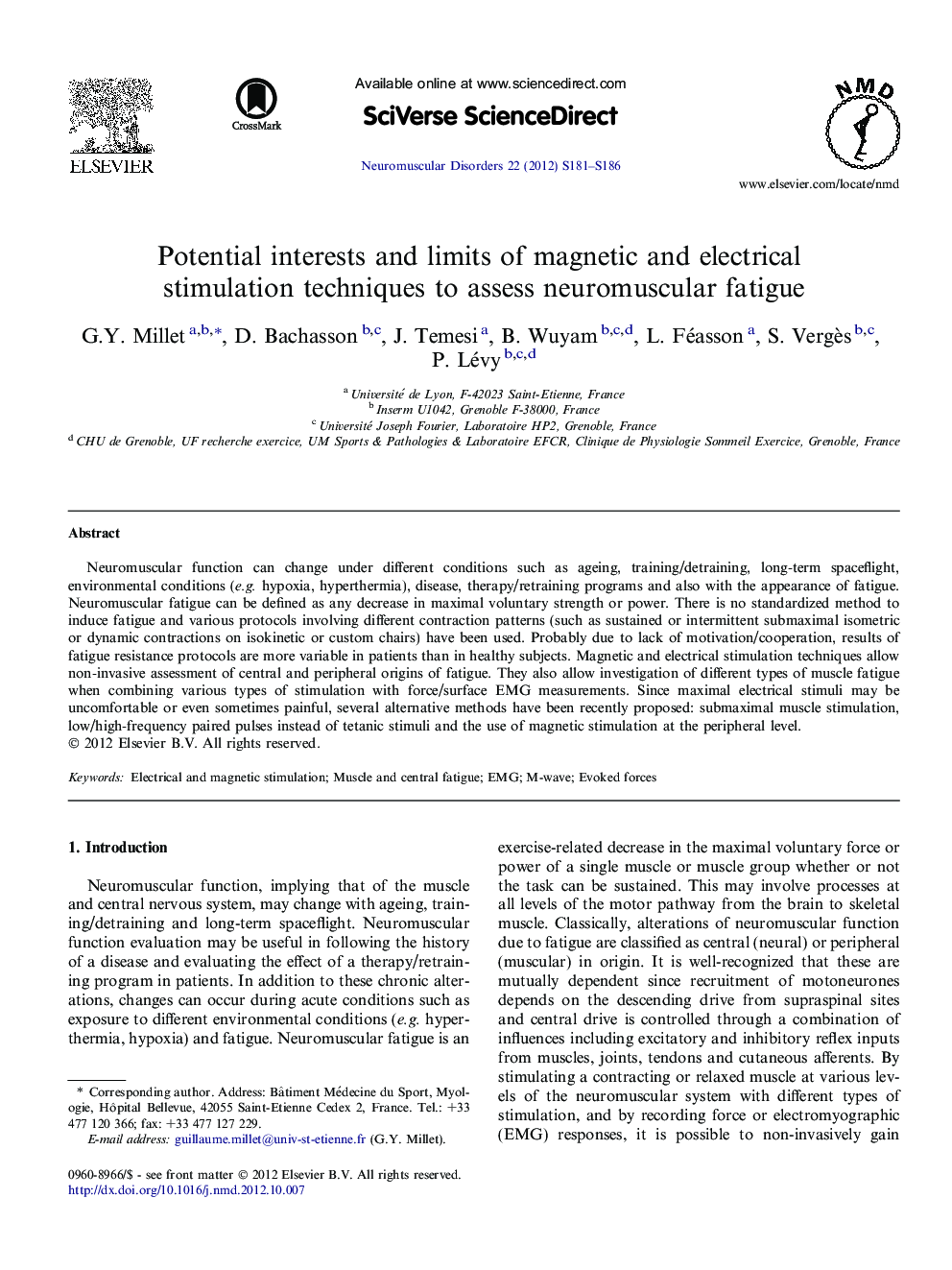| کد مقاله | کد نشریه | سال انتشار | مقاله انگلیسی | نسخه تمام متن |
|---|---|---|---|---|
| 6041940 | 1189345 | 2012 | 6 صفحه PDF | دانلود رایگان |
عنوان انگلیسی مقاله ISI
Potential interests and limits of magnetic and electrical stimulation techniques to assess neuromuscular fatigue
دانلود مقاله + سفارش ترجمه
دانلود مقاله ISI انگلیسی
رایگان برای ایرانیان
کلمات کلیدی
موضوعات مرتبط
علوم زیستی و بیوفناوری
علم عصب شناسی
علوم اعصاب تکاملی
پیش نمایش صفحه اول مقاله

چکیده انگلیسی
Neuromuscular function can change under different conditions such as ageing, training/detraining, long-term spaceflight, environmental conditions (e.g. hypoxia, hyperthermia), disease, therapy/retraining programs and also with the appearance of fatigue. Neuromuscular fatigue can be defined as any decrease in maximal voluntary strength or power. There is no standardized method to induce fatigue and various protocols involving different contraction patterns (such as sustained or intermittent submaximal isometric or dynamic contractions on isokinetic or custom chairs) have been used. Probably due to lack of motivation/cooperation, results of fatigue resistance protocols are more variable in patients than in healthy subjects. Magnetic and electrical stimulation techniques allow non-invasive assessment of central and peripheral origins of fatigue. They also allow investigation of different types of muscle fatigue when combining various types of stimulation with force/surface EMG measurements. Since maximal electrical stimuli may be uncomfortable or even sometimes painful, several alternative methods have been recently proposed: submaximal muscle stimulation, low/high-frequency paired pulses instead of tetanic stimuli and the use of magnetic stimulation at the peripheral level.
ناشر
Database: Elsevier - ScienceDirect (ساینس دایرکت)
Journal: Neuromuscular Disorders - Volume 22, Supplement 3, 1 December 2012, Pages S181-S186
Journal: Neuromuscular Disorders - Volume 22, Supplement 3, 1 December 2012, Pages S181-S186
نویسندگان
G.Y. Millet, D. Bachasson, J. Temesi, B. Wuyam, L. Féasson, S. Vergès, P. Lévy,